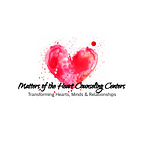Embracing Natural Remedies For Non Drug Depression Treatment
In today’s fast-paced world, depression has become increasingly prevalent, affecting individuals of almost all ages and backgrounds. While medication is commonly prescribed for managing depression symptoms, there is a growing interest in natural and holistic approaches to treatment. Let’s explore some unique non-drug depression treatments that offer alternative paths to healing.
Herbal Remedies
Herbal remedies have been used for centuries to promote mental well-being and minimize symptoms of depression. Certain herbs, such as St. John’s Wort, lavender, and chamomile, have shown promise in reducing depressive symptoms and promoting relaxation. Incorporating herbal teas, tinctures, or supplements into your daily routine may provide a natural way to support your mental health.
Light Therapy
Light therapy commonly known as phototherapy, involves exposure to bright artificial light to regulate mood and sleep patterns. People with Seasonal Affective Disorder (SAD), a severe type of depression that manifests during the winter when daylight hours are scarce, benefit most from this medication. Spending time in front of a light therapy box each day can help improve mood and energy levels.
Aromatherapy
Using essential oils made from plants, aromatherapy helps people unwind and feel happier. It has been demonstrated that certain essential oils, such bergamot, ylang-ylang, and lavender, have uplifting and relaxing benefits on the body and mind. Diffusing essential oils throughout your house or adding drops to a hot bath will help to reduce depression symptoms and create a calming atmosphere.
Acupuncture
Acupuncture is an old Chinese medicine practice which involves inserting a few thin needles into specific points on the body for better healing and balanced energy flow. This holistic therapy has been found to reduce depression symptoms by promoting the release of endorphins, the body’s natural painkillers, and regulating neurotransmitter levels. Incorporating acupuncture into your treatment plan may provide relief from depression symptoms and improve overall well-being. It is considered one of the best non-drug depression treatments.
Meditation and Mindfulness
Meditation and mindfulness practices involve cultivating present-moment awareness and non-judgmental acceptance of thoughts and emotions. These practices have been shown to reduce anxiety, stress and depression by promoting relaxation and inner peace. Taking time each day to practice meditation or mindfulness can help calm the mind, improve mood, and enhance overall mental well-being.
Nutritional Therapy
Nutritional therapy focuses on optimizing diet and nutrient intake to support mental health and well-being. Certain nutrients, like fatty acids, vitamin D, omega-3 fatty acids, vitamin D, and magnesium, play key role in brain function and mood regulation. Incorporating nutrient-rich foods such as leafy greens, fatty fish, seeds and nuts into your diet can provide the essential nutrients your body needs to support mental health.
In conclusion, embracing natural remedies offers a holistic approach to treating depression and promoting overall well-being. From herbal remedies and light therapy to aromatherapy and acupuncture, there are many alternative treatments available that may provide relief from depression symptoms. By exploring non-drug depression treatments with the guidance of a healthcare professional, individuals can take proactive steps toward healing and reclaiming their mental health.
